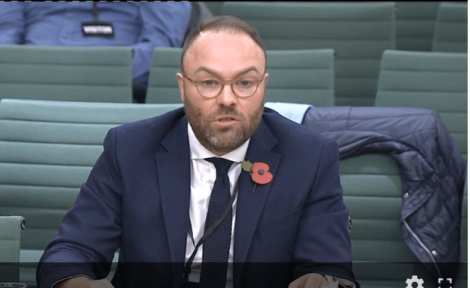Labour wants to prevent tenants being evicted for two years
Amendment to the Renters (Reform) Bill would see landlords wait for two years after a tenancy has started before being able to sell - or move back into - the property.

An amendment has been added to the Renters (Reform) Bill that would prevent landlords selling a property for two years after a tenancy has begun.
The rule would only apply to landlords wishing to sell a property or move back into it as introduced by Labour’s shadow housing secretary Matthew Pennycook (main image).
This amendment is one of eight new amendments added to the Bill, the list of which already stretches to 112 pages.
Notice to quit
Other significant amendments, which will now have to be debated and voted through as the bill goes through its third reading next week, include preventing tenants from giving notice to quit until they have been in a property for four months.
This means, given that they have to give two months’ notice, will reassure landlords that renters won’t be leaving a property for six months, which is the current position with ASTs, in effect.

Tory MP Natalie Elphicke has also added an amendment that would require landlords to pay renters one to two month’s rent if they asked them to leave a property within the first two years of a tenancy, depending on the reason given for the eviction.
This would be one month’s rent in the case of possession on Ground 1 or 1A (moving back in or selling a property); and two month’s rent in the case of any other ground except 7A and 14, which relate to antisocial behaviour and criminal activity, for which a relocation payment does not apply.
But next week, when the Bill is due to be debated again, a more important ‘bunfight’ is likely over some amendments as the ‘rebel’ 49 Tory MPs attempt to ensure theis, which were added earlier this year, are included. These are:
• Banning section 21 evictions but only when the court system has been upgraded and backlogs have been cleared;
• Loosening the proof of evidence when evicting anti-social tenants;
• Getting rid of selective licencing schemes when the national register goes live as the two are basically the same thing;
• Requiring tenants to commit to at least four months in a property before giving notice;
• Protecting student HMO landlords from the introduction of periodic tenancies, which are not appropriate to tenants at
• Universities who have no intention of staying in their properties for long periods.
Reaction
Propertymark says it is pleased to see the amended proposals incorporate additional standpoints including a promise to review the health of the private rented sector every year, and also backs some of the amendments by the rebel MPs including their call for property licencing to be reviewed or even abolished once the new Property Portal goes live.

Timothy Douglas, its Head of Policy and Campaigns, adds: “Throughout the passage of the Bill, we have worked hard to highlight the importance of retaining fixed-term tenancies and the need for improvements to the court system if the abolition of Section 21 is to work”.






Or how about the scenario where a couple who each have a flat decide to move in together and rent out the other flat. Then the relationship breaks down and the owner can’t move back into their own property for the remainder of the two years. What’s that person going to do? Not risk renting the property out in the first place, or do an Angela Rayner and pretend to be a “resident landlord”, and the couple claims Principal Private Residence tax relief even after they get married.
Promise to review the health of the PRS every 2 years!! Year 1: beep, beep, beep …… Year 2 beeeeeeeeeeeeep
I’m astonished by what I’m reading. Do these clowns (sorry, politicians) comprehend the harm they’re inflicting on the PRS? Are they oblivious to the increasing number of landlords divesting nationwide? Their errors are substantial, and in my view, the situation will deteriorate further. Why don’t they consult us (the Agents) to understand the realities of the field? But then again, that would require common sense, wouldn’t it?!
So an owner who goes away on a one year contract will have to leave his property ermpty; seems like a good way to alleviate the housing crisis.
“No situation is so bad that government intervention cannot make it worse”
G. R. Steele
16 June 2011